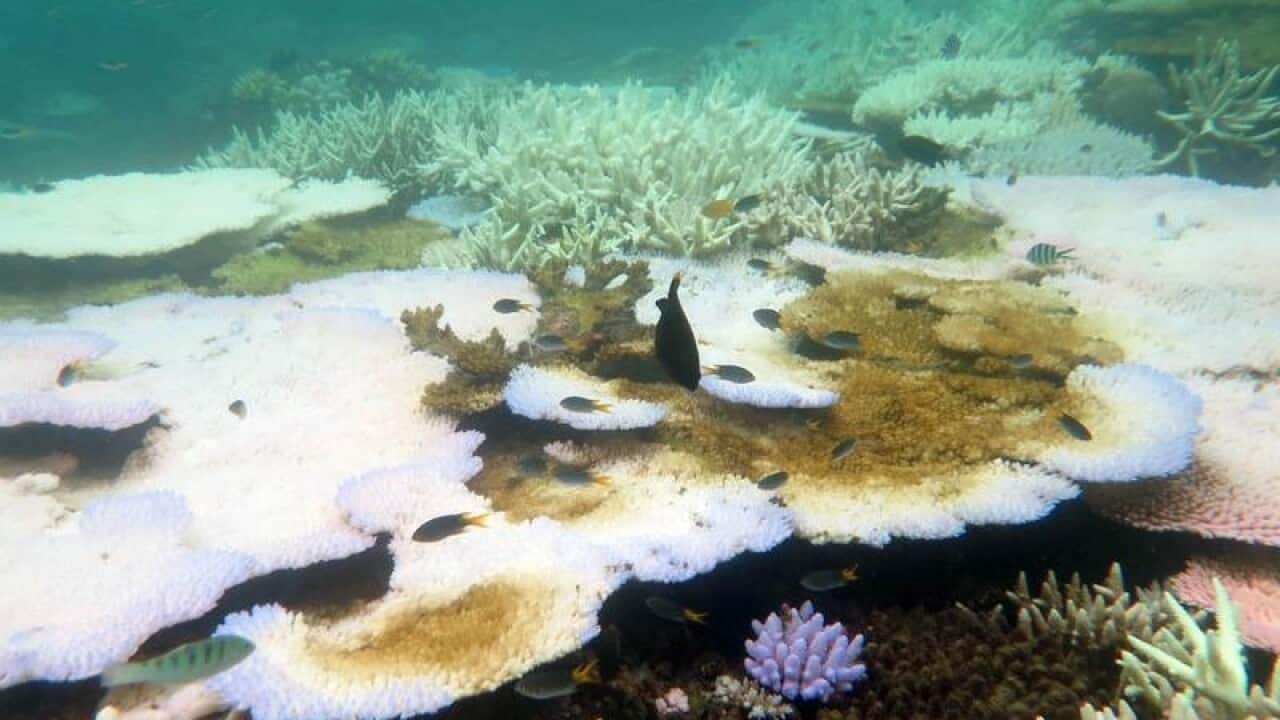The world must start ploughing time and money into new research to understand how crucial coral species might survive climate change, an Australian-led team of scientists says.
A new paper by international coral experts says the mechanisms corals might use to acclimatise and adapt to a rapidly warming world are poorly understood.
While there's been some promising new knowledge, they say efforts to understand those mechanisms must be ramped up, and now.
"We can't wait for the full impacts of ocean warming before we start thinking about how we're going to solve the problem," says climate change scientist Dr Line Bay, from the Australian Institute of Marine Science (AIMS).
Scientists say research must focus on hard coral species - the building blocks upon which everything else on the reef depends.
"These are the trees of the rainforest, the foundational species that support the enormous biodiversity we recognise on the reef," Dr Bay says.
"Just like you can't have a forest without trees, you can't have a reef without hard corals."
Scientists around the world, including in Australia, have learned much over the past decade about how corals function and respond to their environment.
"Corals are not only animals, they are individuals. Within the same species you'll have individuals that are more sensitive to extreme conditions, and others that are more tolerant."
Dr Bay says such knowledge could lead to new and practical strategies to aid reef survival, such as breeding heat tolerant coral to help the reef recover from mass bleaching events.
The group of scientists, led by AIMS and Dr Gergely Torda from James Cook University's Centre of Excellence for Coral Reef Studies, have published their paper in the journal Nature Climate Change.
Dr Torda says much rides on the ability to better understand the mechanisms that could enable corals to cope with warmer seas, which caused back-to-back mass bleaching events on the Great Barrier Reef this year and last.
"The time to act is now, as the window of opportunity to save coral reefs is rapidly closing," Dr Torda says.
Share

